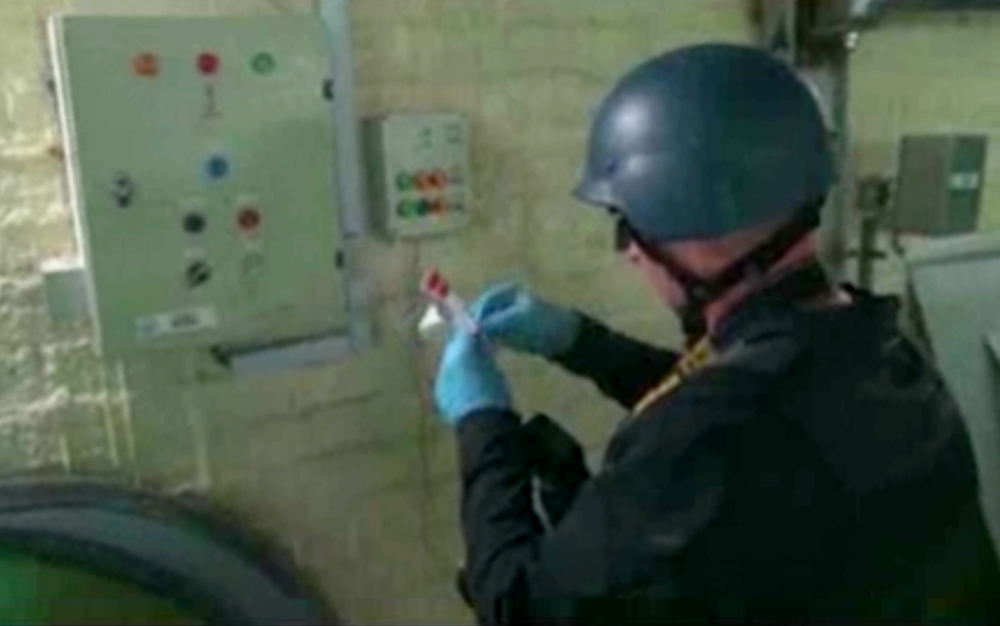BEIRUT — With only a cloth mask for protection, Firas Kayali rushed to try to rescue the residents of a house in a village in rebel-held northern Syria after a barrel bomb, suspected to be filled with chlorine gas, hit nearby.
Once a house painter and now a member in a volunteer rescue team, Kayali tried once, twice, three times to break into the house, but he was overcome by the gas and passed out. Only 20 minutes later, after the gas dissipated, was the team able to get into the house.
Inside, they found a toddler dead, Kayali told The Associated Press, recounting the May 2 attack. The child’s father died a few days later, his lungs collapsed, in a hospital near the Turkish border.
“I blamed myself first. But then again I go back and say if we had equipment and outfits, maybe,” Kayali said. “Then again, ‘if’ will not change anything now. … God destined and what he destined happened.”
Frustrated and despairing, Syrian opposition activists are trying to garner international pressure to stop a growing number of attacks using chlorine gas, which they say are undoubtedly carried out by government aircraft.
Two years after President Bashar Assad agreed to destroy his chemical arsenal and joined the Chemical Weapons Convention, activists say they have documented 18 cases of chlorine gas used in the country’s rebel-held north since March 6, when the United Nations issued a resolution determining that chlorine was used in Syria and warning of repercussions. They say the attacks have killed nine people and injured hundreds.
The Syrian government denies using chlorine gas. But activists and residents of the villages hit say the attacks, usually at night, are clearly by government forces. The chlorine bombs are dropped in barrels from the skies, and residents say they hear the buzz of helicopters first. Syrian military forces are the only combatants in the civil war known to fly helicopters, and the villages hit are pro-rebel, largely in the northwestern province of Idlib.
Still, it is proving impossible to legally link the Assad government to the attacks.
The world agency in charge of determining whether chlorine was used does not have the mandate to assign blame. The Organization for the Proliferation of Chemical Weapons also can’t get to the scenes of suspected attacks without the cooperation of the Syrian government. The U.N. Security Council is paralyzed because Russia, a major ally of Assad, insists the allegations are “propaganda.”
The Syrian Civil Defense, a group of 2,640 volunteers that provides emergency and rescue services in rebel-held and contested areas, has been gathering evidence to document the recent attacks, said Farouq Habib, the group’s political adviser. He and the group’s director, Raed Saleh, returned this week from the United States, where they met U.S. and European officials.
They collected remains from the barrels used in a number of bombings, soil samples that the group says show high levels of chlorine traces and urine and blood samples from victims.
Send questions/comments to the editors.



Success. Please wait for the page to reload. If the page does not reload within 5 seconds, please refresh the page.
Enter your email and password to access comments.
Hi, to comment on stories you must . This profile is in addition to your subscription and website login.
Already have a commenting profile? .
Invalid username/password.
Please check your email to confirm and complete your registration.
Only subscribers are eligible to post comments. Please subscribe or login first for digital access. Here’s why.
Use the form below to reset your password. When you've submitted your account email, we will send an email with a reset code.